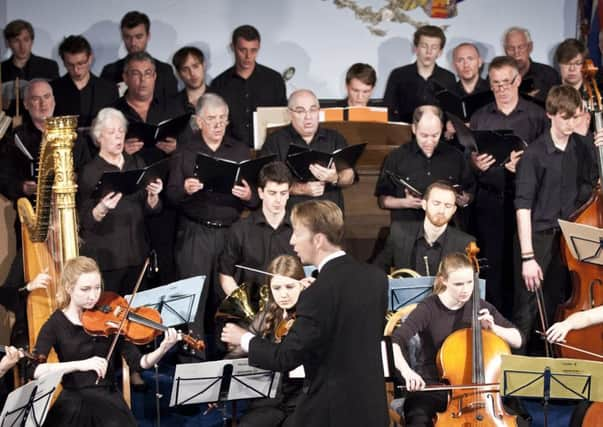Preview: Cumnock Tryst Festival


Eamonn Dougan is the driving force behind the Chorus, and he’s rightly proud of what the ensemble has achieved since it started back in 2014. He’s one of the UK’s most respected choral conductors, and associate conductor of crack chamber choir The Sixteen, who themselves have strong links with the Cumnock festival. “James invited the Sixteen to sing as the focal concert of the first festival,” Dougan explains, “and he also asked me to lead a ‘come and sing’ day. We had no idea of what kind of response we’d get, but it was such a success that afterwards we immediately thought this could be a festival chorus.”
For the second Cumnock Tryst, last year, the chorus went in at the deep end with one of the cornerstones of the choral repertoire: Fauré’s achingly beautiful Requiem. “It was James’s idea to do it,” Dougan continues, “and it was absolutely tremendous. It’s a core piece but it’s not easy by any means, and for people who hadn’t really sung much previously, it’s a real challenge.”
Advertisement
Hide AdAdvertisement
Hide AdBut that sense of challenge, for Dougan, feeds right into the benefits that can be gained from singing in a choir – one of the direct reasons for its current popularity. “The benefits are well documented,” he explains, “in terms of physical and mental health. It’s all about a sense of community – a togetherness and a collegiality, and a sense of achievement too. And in a relatively small place like Cumnock, that sense of achievement is a really big thing.”
And it’s a core aim of the festival to draw its chorus from the local area: the majority of singers come from Cumnock itself or more widely across Ayrshire, and there are no set entry criteria – although given the level of the music it undertakes, a bit of prior experience doesn’t go amiss.
This year, the Festival Chorus is again one of the festival’s highlights, alongside a concert from Nicola Benedetti’s trio and a promenade concert in Dumfries House, and it shares its concert with renowned bass Willard White singing Copland’s Old American Songs. And the chorus is taking on an even bigger challenge – by London-born Cecilia McDowall, a composer with a rare gift for communication. “She’s got very much her own language,” Dougan explains. “Harmonically it’s very interesting – but she doesn’t make things unnecessarily difficult.” Her Stabat Mater, a meditation on the Virgin Mary as she watches over her Son on the cross, is one of the pieces that’s established McDowall’s name. “I started thinking about using a children’s chorus alongside the Festival Chorus,” says Dougan, “and in Cecilia’s Stabat Mater the central movement is a beautiful, ethereal song for children, and they come back at the end as a kind of heavenly voice.”
The focus on youth doesn’t stop there: as well as the new children’s choir, drawing on singers from the RSNO Junior Chorus, the Festival Chorus will be joined by singers from the Genesis Sixteen, the Sixteen’s own wing of exceptional young singers, and a chamber orchestra of players from the National Youth Orchestra of Scotland.
“There’s a big focus on young singers and young instrumentalists this year, and that’s absolutely as it should be,” says Dougan.
It’s been a steep trajectory for a brand new choral ensemble. What plans does Dougan have for the future? “Who knows? I’ve got some ideas – maybe something lighter, a bit jazzier for next year. It’s great to do these big pieces, but it’s good to offset them with a bit of levity as well.” ■
The Cumnock Tryst runs from 29 September until 2 October,
www.thecumnocktryst.com